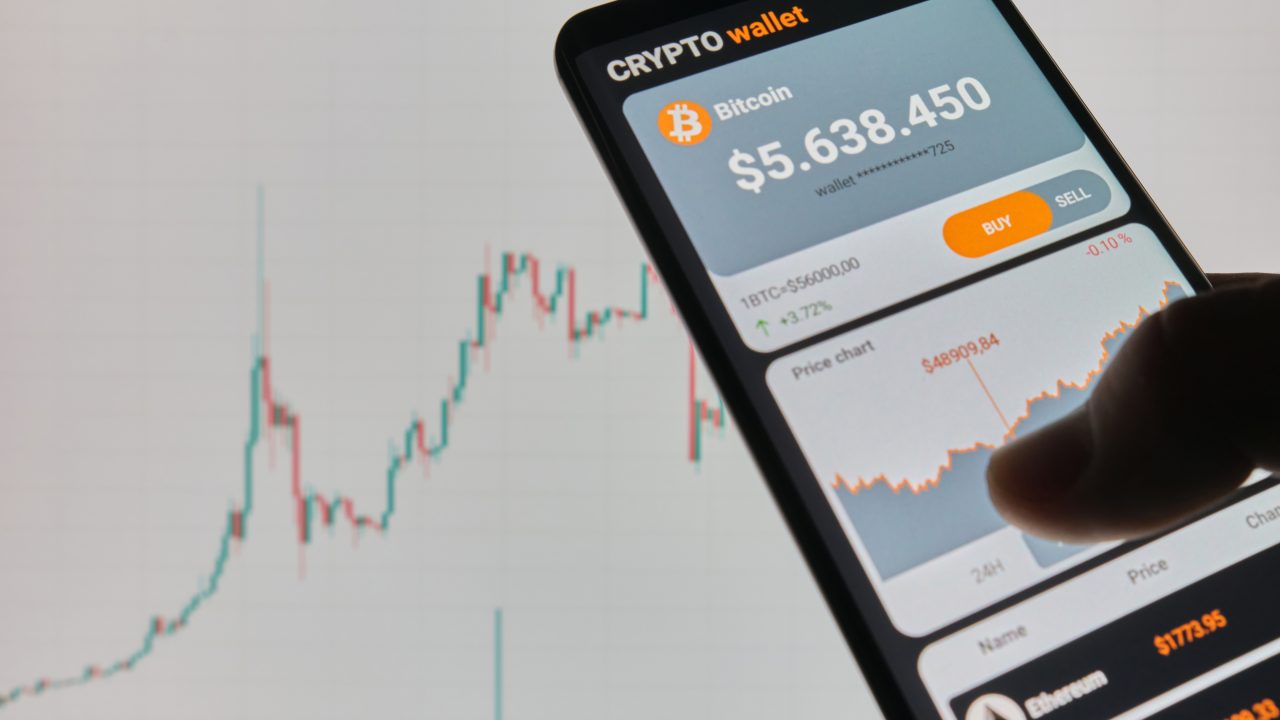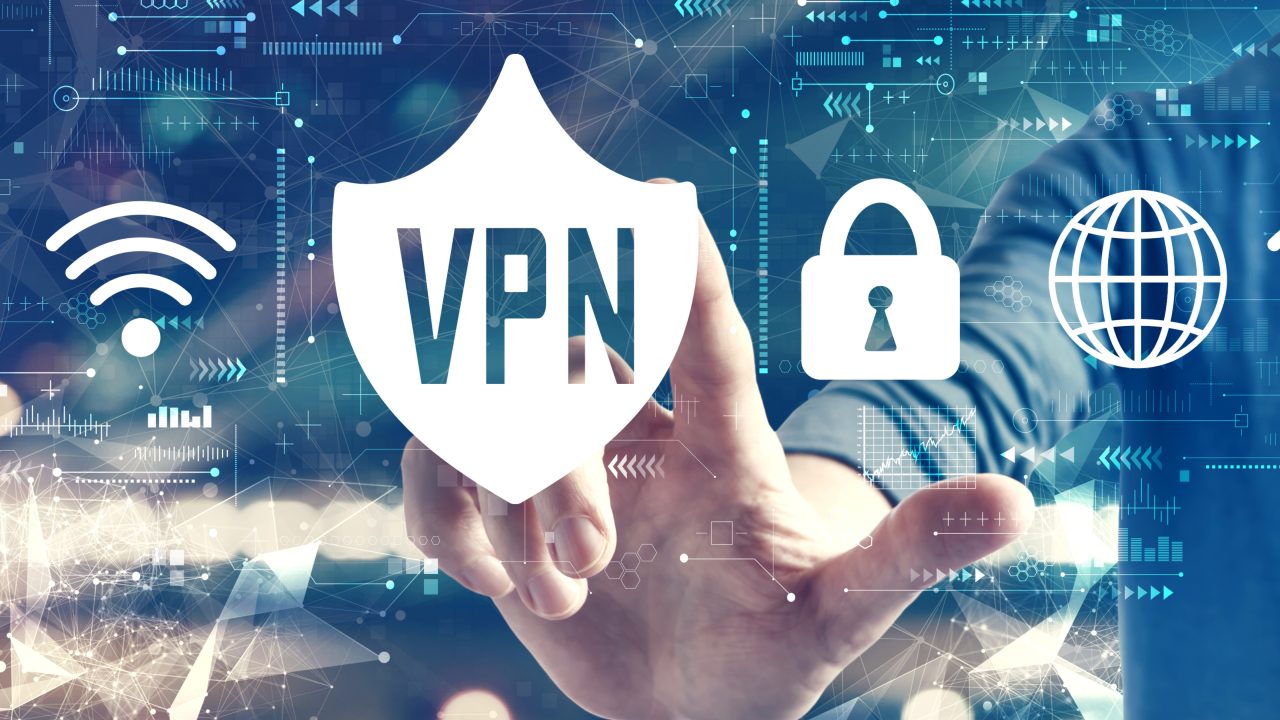
Navigate The World Of Cryptocurrency Safely With Our VPN Blog
With the rise of cryptocurrency, more and more people are getting involved in the digital currency market. However, as the popularity of cryptocurrency grows, so does the risk of cyber attacks and theft. How can you navigate the world of cryptocurrency safely and protect your investments?
Cryptocurrency has revolutionized the way we think about money and transactions. It offers a decentralized and secure way to conduct financial transactions, but it is not without its risks. Hackers and cybercriminals are constantly looking for ways to exploit vulnerabilities in the cryptocurrency market. In order to protect your digital assets, it is crucial to take the necessary precautions.
Our VPN blog is here to provide you with the essential information and tips on how to navigate the world of cryptocurrency safely. From understanding the basics of cryptocurrency to securing your digital wallet, we will guide you through the steps you need to take to protect your investments. With our expert advice and insights, you can stay one step ahead of cyber threats and ensure the safety of your cryptocurrency transactions.
What is a VPN?
A VPN, or Virtual Private Network, is a technology that allows users to create a secure and encrypted connection to another network over the internet. This enables users to access websites and online services privately and securely, as well as bypass geographic restrictions and censorship. In this digital age, where cyber threats are rampant, using a VPN is essential to protecting your personal information, browsing history, and online activities from prying eyes. Whether it’s for business or personal use, understanding what a VPN is and how it works is crucial in today’s interconnected and potentially insecure online environment.
The Benefits of Using a VPN with Cryptocurrency
Using a VPN with cryptocurrency offers numerous benefits for enthusiasts and investors. First and foremost, it boosts security by creating a secure and private connection between the user and the internet. This helps to prevent unauthorized access or hacking attempts, ensuring that sensitive financial information remains protected.
Additionally, a VPN encrypts data, making it unreadable to anyone who may intercept it. This adds an extra layer of security, especially when conducting financial transactions or managing cryptocurrency wallets. As a result, the risk of theft or fraud is significantly reduced.
Furthermore, a VPN prevents tracking by third parties, such as internet service providers, government agencies, or cybercriminals. This ensures that one’s online activity remains anonymous and private, which is essential for maintaining the confidentiality of cryptocurrency transactions.
For enhanced security, some users may opt for a double VPN, which routes their internet traffic through two different VPN servers for added protection against potential threats.

Types of Crypto Wallets
Crypto wallets are essential for anyone looking to dive into the world of cryptocurrency. They allow users to store, send, and receive digital currency securely. There are several types of crypto wallets available, each with its own set of features and security measures. Understanding the different types of crypto wallets is crucial for selecting the best option that suits your needs and preferences.
Hardware Wallets
Some top hardware wallets available on the market include the Ledger Nano S and Trezor. These wallets keep private keys offline, making them a secure option for storing cryptocurrency.
Hardware wallets create a formidable challenge for potential cyber thieves because the private keys are stored offline on a physical device, making it extremely difficult for hackers to access. This provides an added layer of security compared to online wallets or exchanges, which are more vulnerable to hacking attempts.
Using hardware wallets for storing cryptocurrency offers numerous benefits and security features. These wallets typically require a PIN code to access the device, and some even have additional security measures such as passphrase protection. They also provide the ability to back up the wallet, providing peace of mind in case the physical device is lost or damaged. In addition, hardware wallets are immune to computer viruses and malware, ensuring the safety of the stored cryptocurrency.
Online Wallets
Online wallets provide a convenient way to store cryptocurrencies, with benefits such as easy access from any device and the ability to quickly make transactions. However, there are several risks to consider. Online wallets are vulnerable to hacking, phishing attacks, and malware, potentially resulting in the loss of funds. When choosing an online wallet, it is crucial to select a reputable provider with a strong track record of security and reliability. Look for features such as two-factor authentication, encryption methods, and multi-signature capabilities to ensure the highest level of security.
Additionally, it’s important to understand the difference between hot wallets and cold wallets. Hot wallets are online wallets connected to the internet, making them more susceptible to hacking, but also more accessible for regular transactions. Cold wallets, on the other hand, are offline storage devices or paper wallets, offering higher security but less convenience for frequent use.
When selecting a secure online wallet, consider the trade-off between security and accessibility that best suits your needs, and prioritize the features and reputation of the provider to safeguard your cryptocurrency assets.
Cold Wallets
The best practice for storing cryptocurrency in cold wallets includes using multiple wallets to spread the risk and avoid putting all your assets in one place. This also helps in case one wallet becomes compromised. It is important to keep the cold wallets offline and in a secure location, such as a safe or safety deposit box. However, offline wallets have potential vulnerabilities, such as physical loss or damage to the wallet.
There are two main types of cold wallets: hardware wallets and software wallets. Hardware wallets are physical devices that store the user’s private keys offline, providing a high level of security. On the other hand, software wallets are applications that run on computers or mobile devices and store the keys offline. The pros of hardware wallets are their high security and ease of use, while the cons are their cost and potential physical vulnerabilities. Software wallets are usually free and easy to use, but they are more vulnerable to online attacks.
For everyday transactions, it is advisable to use a software wallet for its convenience. However, for long-term storage, a hardware wallet is the recommended option for maximum security. Balancing security and usability is crucial in deciding which wallet to use for different activities.

Keeping Your Crypto Safe from Potential Threats
When it comes to protecting your crypto assets, it’s crucial to be vigilant and proactive in safeguarding them from potential threats. From online scams to hacking attempts, the world of cryptocurrency is filled with various dangers that could compromise your holdings.
Phishing Attacks and Attempts
Phishing attacks are a common threat in the world of crypto trading. To identify and avoid these attacks, it’s important to be vigilant and proactive. When dealing with emails, always double-check the sender’s email address for any discrepancies or subtle changes. Be wary of emails that urgently ask for personal information or prompt you to click on suspicious links.
In the case of phone calls, be cautious of unsolicited calls asking for personal or sensitive information. Always verify the identity of the caller and refrain from giving out any personal details over the phone. Additionally, ensure that all online accounts are protected by using multi-factor authentication to add an extra layer of security.
To further protect your personal information and digital assets, consider using a reputable antivirus software and regularly update your security measures. It’s also essential to use strong, unique passwords for each of your crypto exchange accounts. Remember to never share your private keys or login credentials with anyone, and always be cautious of sharing sensitive information online. By being mindful of these tips, you can significantly reduce the risk of falling victim to phishing attacks in the realm of crypto trading.
Multi-Factor Authentication and Extra Layers of Security
To set up multi-factor authentication for your crypto wallet accounts, start by enabling 2-factor authentication (2FA) using an authenticator app on your dedicated device. This adds an extra layer of security by requiring a one-time code in addition to your password. Next, consider using a Virtual Private Network (VPN) for added security when accessing your accounts. A VPN encrypts your internet connection, making it more difficult for hackers or snoopers to intercept your data.
Implement additional security measures by using a dedicated device for your crypto wallet transactions. This device should be used exclusively for accessing your wallet and should be kept updated with the latest security patches and antivirus software.
The benefits of multi-factor authentication and additional security measures are crucial in safeguarding your crypto assets. They help protect against unauthorized access and reduce the risk of falling victim to cyber attacks.
Staying informed about the latest security trends is also important. Keeping up with the latest developments in cybersecurity helps you stay ahead of potential threats and ensures that you can adapt your security measures accordingly. By being proactive and implementing these security measures, you can better protect your crypto assets and have peace of mind knowing that your investments are secure.
Reputable Exchanges and Online Activity Monitoring
Reputable crypto exchanges are characterized by strong security measures, a track record of safety, and a commitment to regulatory compliance. When choosing a reputable exchange, it’s important to look for features such as two-factor authentication, cold storage for funds, and regular security audits. A reputable exchange will also have a history of adhering to industry best practices and a transparent approach to handling customer assets.
Monitoring online activity is crucial for detecting unauthorized access or suspicious behavior on crypto exchanges. By regularly checking account activity and login history, users can quickly spot any irregularities and take action to protect their assets. Additionally, monitoring online activity allows users to stay informed about any security updates or new features offered by the exchange, helping them stay one step ahead of potential threats.
In the volatile world of cryptocurrencies, the importance of dealing exclusively with reputable exchanges and monitoring online activity cannot be overstated. By prioritizing security and remaining vigilant, users can mitigate the risks associated with unauthorized access and ensure the safety of their assets.

Cryptocurrency Transactions & Exchanges
Cryptocurrency transactions and exchanges play a fundamental role in the ever-growing world of digital assets. As more individuals and businesses embrace cryptocurrencies, the need for secure and efficient methods of trading and exchanging these digital assets has become increasingly important. This has led to the development of various platforms and services aimed at facilitating cryptocurrency transactions and exchanges.
Understanding Crypto Assets & Digital Assets
In today’s digital world, crypto assets and digital assets play a significant role in how we manage and exchange value. Crypto assets, such as Bitcoin and Ethereum, are digital currencies that operate independently of a central authority. Digital assets, on the other hand, encompass a broader range of digital properties, including everything from music and movies to online accounts and documents.
The significance of these assets lies in their ability to provide access to a wide range of financial services without the need for traditional banking systems. However, with the increasing use of crypto and digital assets comes the need for robust security measures to protect them from hacks and theft.
Blockchain technology, the underlying technology behind many crypto and digital assets, has the potential to revolutionize the future. Its decentralized and transparent nature offers enhanced security and efficiency in managing digital transactions. As blockchain technology continues to evolve, the potential impact on various industries, including finance, supply chain management, and healthcare, is immense.
Identifying IP Addresses & Connections
To identify and secure your IP address and internet connections, use a Virtual Private Network (VPN). A VPN creates a secure, encrypted connection between your device and the internet, preventing tracking and providing an extra layer of privacy. To use a VPN, simply download and install a reputable VPN service, then connect to a server of your choice. This will mask your real IP address and encrypt your internet traffic, making it much harder for anyone to track your online activities.
Moreover, VPNs can associate the server’s IP address with your crypto activities instead of your own device’s IP address. This adds another layer of protection for your privacy and security. When using a VPN, your internet traffic is routed through the crypto VPN server, providing a new IP address that can be associated with your crypto transactions instead of your personal IP address. By using a VPN, you can safeguard your identity, increase your privacy, and prevent unauthorized tracking of your online activities.
Utilising Smart Contracts When Trading Cryptocurrency
Smart contracts are a valuable tool for facilitating digital asset transactions in the cryptocurrency trading space. To utilize smart contracts for trading, one must first set up a smart contract on a blockchain platform, such as Ethereum, by defining the terms and conditions of the trade, including the assets involved, the price, and the time frame. Once the contract is deployed, it automatically executes the trade when the predefined conditions are met, eliminating the need for third-party intermediaries.
The benefits of using smart contracts for cryptocurrency trading are significant. Automation streamlines the trading process, reducing the potential for human error and ensuring transactions are executed efficiently. Transparency is enhanced as all terms and conditions are transparently recorded on the blockchain. Additionally, smart contracts provide security by utilizing cryptographic techniques to maintain the integrity of the transaction and minimize counterparty risk.
Furthermore, smart contracts can be integrated with cryptocurrency exchanges to ensure efficient and secure trading experiences for users. This integration allows for seamless execution of trades and provides an additional layer of trust and security for all parties involved. Overall, smart contracts play a crucial role in streamlining the cryptocurrency trading process and enhancing the security of digital asset transactions.
Differentiating Between Financial Transactions & Crypto Transactions
Financial transactions involve the exchange of money, assets, or services using traditional banking systems, while crypto transactions involve the exchange of digital currencies through decentralized networks. The key difference lies in the use of central authorities in financial transactions and the absence of intermediaries in crypto transactions. Crypto transactions are unique in that they are irreversible, borderless, and operate 24/7, unlike traditional financial transactions.
Crypto transactions are secured and verified through blockchain technology, a decentralized ledger that records all transactions across a network of computers. This ensures transparency, immutability, and security, as each transaction is encrypted and linked to the previous transaction in a chain.
The main advantages of financial transactions include convenience, widespread acceptance, and regulatory protection, while the main advantages of crypto transactions include lower fees, faster processing times, and enhanced privacy. However, challenges such as price volatility, lack of regulation, and security concerns exist for crypto transactions.
In today’s digital landscape, both financial and crypto transactions offer unique advantages and challenges, catering to different needs and preferences in the global economy.

Conclusion
In conclusion, the potential of crypto-friendly tourism has the power to significantly impact the travel industry. With the increasing popularity and acceptance of cryptocurrencies, modern travelers are seeking destinations that embrace this technology. Emerging destinations are recognizing this trend and are actively implementing blockchain technology and accepting cryptocurrencies as payment to cater to this new wave of tourists. By embracing cryptocurrencies, these destinations are not only attracting a new market of tech-savvy travelers but also positioning themselves as innovative and forward-thinking. As the use of cryptocurrencies continues to grow, the impact on the travel industry will only become more pronounced, making it essential for destinations to adapt to this trend in order to remain competitive in the market.


















